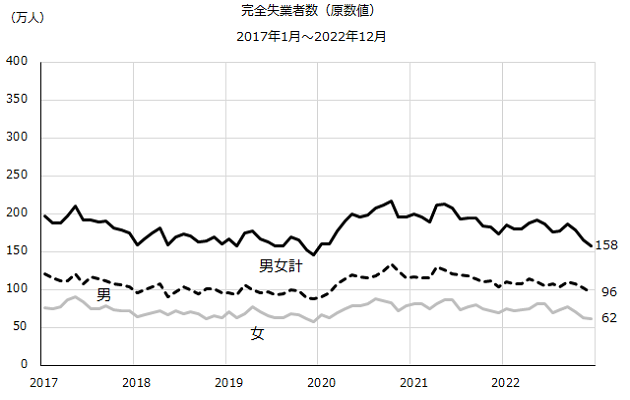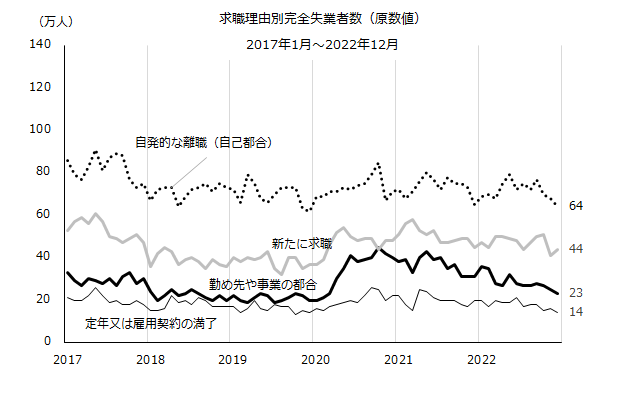Complete guide to resigning from your job in Japan
What is it like to quit your job in Japan?
A lot of people think about working in Japan, but don’t think about how to quit a job in Japan. Well, of course, no one would think that way. You don’t know if you can even land a job in Japan, so why think about how to quit in the first place? Even if you were successfully able to get a job in Japan, you might be overwhelmed and too excited to imagine what life in Japan would be, to even consider the possibility that you might want to choose a different path in the future.
However, in any country you work, you should always have a future plan of what you want to do, or who you want to be. In the modern business world, not a lot of people continue to work at the same company for several decades, and usually, workers switch jobs at least once in their careers. Therefore, it will certainly benefit you to learn how to quit your job on good terms, especially if it is a foreign workplace and you don’t know the business manner in that location.
In this article, we will explain the current situation of resignation in Japanese workplaces, and how you can quit your job in Japan on good terms.

The situation with covid-19 and resignation outside of Japan
The world has changed a lot since the outbreak of the coronavirus, and people are starting to think twice about continuing to work in the same work environment. For example, there is something called the “great resignation” happening in the U.S.. According to an article by CNBC, 55% of Americans anticipate looking for a new job. Here’s a more detailed result of this survey below.
Some 55% of people in the workforce, meaning that they’re currently working or actively looking for employment, said they are likely to look for a new job in the next 12 months, according to Bankrate’s August jobseeker survey, published Monday. YouGov Plc conducted the survey of 2,452 adults for Bankrate from July 28 to July 30.
Also, the same article, mentions why employees are considering resigning from their current jobs.
Some 56% of those surveyed said that flexibility was their primary reason to look for a new job, topping higher pay and job security. This trend was the same even for the lowest-paid workers — 52% of those making $30,000 or less still put flexibility as their top reason to look for a new job, over higher pay. Other surveys have shown similar results. Nearly 40% of consumers surveyed by Ally Bank in August said they’re considering changing jobs in the next six months, citing remote work, career advancement and flexibility as top desires.
Next, let’s see what the current situation regarding resignation from workplaces in Japan is like.
The situation with covid-19 and resignation in Japan
According to The Japan Institute for Labour Policy and Training, there were 1.93 million people who were counted as completely unemployed. Of the 1.93 million people there were 1.17 million men and 0.76 million women. The total number of people who were counted as completely unemployed seems to not have changed since 2017. Although, when focusing on the period since the beginning of 2020, you can see that the total number was near 1.5 million. Since the outbreak of the coronavirus, it seems that number has increased by 1.28 times.

The next graph indicates the reason why people left their workplace. This graph was also taken from The Japan Institute for Labour Policy and Training. Each line in the graph below represents different reasons for leaving their workplace. The most common reason to leave a workplace is because of voluntary resignation, and the number for this was 0.77 million. For finding a new job was 0.46 million, the layoff was 0.35 million, and retirement at maturity was 0.2 million.
When looking at this graph, you cant tell that the number for voluntary leave isn’t changing so much over the span of 5 years. In fact, it seems that this number has decreased from about 0.85 million to 0.77 million. However, if you look at the numbers for people who went to find new jobs and who were laid off, they both went up significantly after 2020. This clearly shows two phenomena. First is, a lot of businesses were affected by the outbreak of coronavirus and were forced to let people go. Secondly, a lot of people started thinking about finding a new job because of the prolonged effect of the coronavirus.

How to resign from your workplace in Japan
Do you know how to quit in Japan?
In Japan, traditionally people worked at a single company throughout their life. Changing your job was uncommon, and labor laws are quite strict making it hard for companies to lay off their employees. However, because of the outbreak of coronavirus, more and more employees are seeking new opportunities, and are leaving their current workplaces.
In Japan, there is a common understanding that one should tell the company that they’re resigning at least 1 month before their last planned day of work. (This did not mean the actual resignation day, but the day you actually stop coming to work.) This is because most companies would want you to hand over your work to your successor and this typically takes about 1 month.
According to the Ministry of Health, Labor and Welfare, as stated in Article 627(1) of the Civil Code, employment may be terminated after two weeks from the date of application for termination. Therefore, technically, you can leave your workplace two weeks prior to your actual resignation day and just use up all of your unused paid holidays for the rest of the entire two weeks. However, it is recommended that you tell the company 1 month before your final day of work if you want to leave the company on good terms.
The recommended way to resign in Japan
This is the recommended way to quit your company.
・First set up a meeting with your boss. (If this is by email, the subject could be “ご相談”)
・In the meeting, politely tell your boss that you are going to submit your resignation letter. Be clear that you are quitting, because some bosses will try to persuade you to stay)
・Submit your resignation letter.
It’s simple as that. In Japan, some people are afraid of telling their bosses that they are quitting, and they use a retirement agency service. You can also say thanks via email or mouth to the people you appreciate working together. You should definitely say thank you to your clients as well, but you should decide with your boss how to tell them that you will be working with them no longer.

Think about what you want to do with your career
Quit your job and advance your career
In this article, we have talked about the current situation in Japan and other parts of the world, regarding resignation from the workplace. Also, we have explained how to resign from your job in Japan. If you feel like the current job isn’t for you, it may be a good option to think about a career outside of the company.












